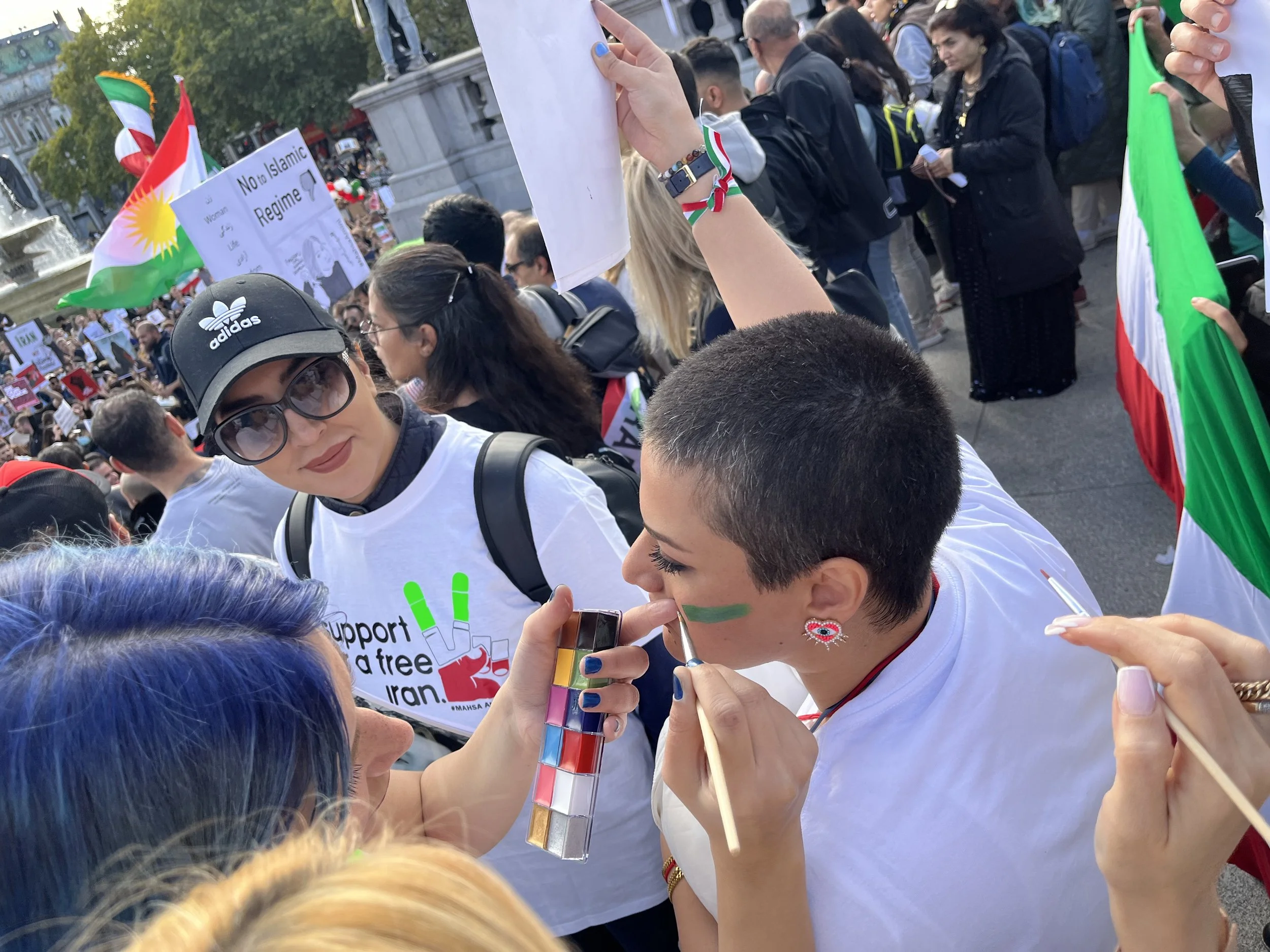Iran, Women and Children
In Iran today Islamic Revolutionary Courts trial cases ranging from “blasphemy” to overthrowing the state. Under the regime, the de facto kidnapping of Nazanin Zaghari-Ratcliffe was justified by officials under the broad banner of her “attempting to topple the state”, but Iran's mistreatment of women encompasses more that those who's abuse sparks international outrage.
Atefeh Sheiki Nasab, 33, fled Iran in 2017, in a desperate attempt to escape the trickle-down misogyny and violence.
She spoke about the restraints imposed on the lives of women and the violence they face.
“When I came here, I found my own life. London taught me politics, who I am.”
The morality codes placed on women make it impossible for them, for any of us should we be in Iran, to exercise the same autonomy and freedom afforded to men.
“I ran away and came here. I have a daughter in Iran, I don’t know if she’s fighting for her rights.”
Atefeh was unable to bring her daughter with her, Iran’s judicial system privileges men, in custody battles.
She says her husband told the court she was a prostitute. The judge ruled in his favour. To date, she has no rights over her daughter.
Atefeh’s experiences of life as a woman in Iran are as common as they are upsetting.
Loss of one’s child through one-sided court proceedings means that globally children of Iranian fathers live in fear of abduction. (Iran does not recognise dual nationality, meaning if kidnapped and taken to Iran, a mother would have no way of regaining her child.
Atefeh hasn’t seen her daughter since she was 7 and probably won't unless she leaves Iran as an adult.
Through the state’s blurring of statute with religious doctrine mouthed by clerics, Iranians are forced to endure a complicated web of psychological torture. Law and faith used to justify one another in an ever-perpetuating cycle. With laws such as committing an “indecent act“. These laws give leeway to board interpretation creating a fear that is then used to suppress a population who until the 1979 Islamic Revolution enjoyed relative freedoms.
Under Iranian law a woman must provide her husband with sex on demand, if she doesn’t comply, he can divorce her, and she’ll also forfeit her right to maintenance payments. Consequently, women are unable to leave abusive marriages, else be faced with blinding poverty with no chance of employment.
Atefeh describes how women in the Islamic Republic are seen as “sex machines, to bring babies”
Malika Ahmadi, 23 is a protest artist originally from Iran now living in Germany. She engages in topless protests against religious fundamentalism. Like Atefeh, she also fled for her safety. “In The West I am safe to be myself, I can protest without being sent to prison, within Iran I would be killed for this.”
For some, the brutality makes them brutal. For others, a resilience they shouldn’t have had to develop but nonetheless retain, emboldens them to speak truth to power and hold tight to their beliefs in the face of anguish.

